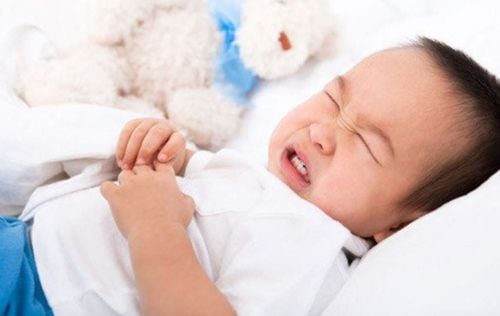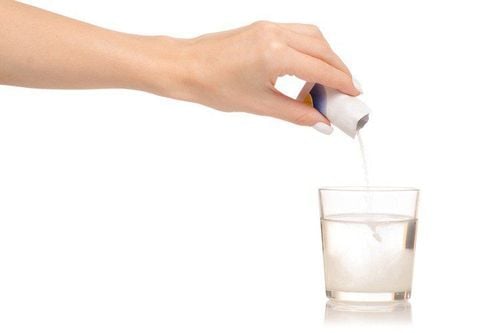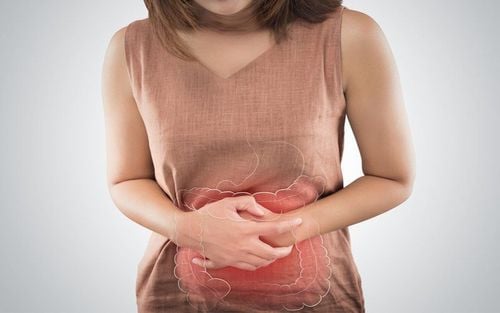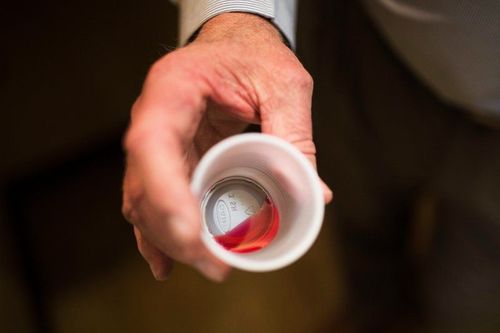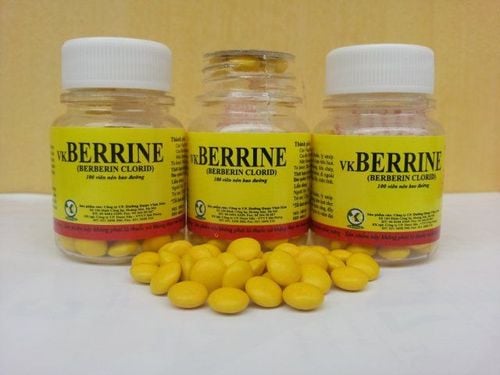This is an automatically translated article.
Antibiotics are the drug of choice in the treatment of bacterial infections. Like other drugs, antibiotics also have unwanted side effects. One of the most common side effects is antibiotic-associated diarrhea, which accounts for nearly 20% of people taking antibiotics for treatment.
1. What is diarrhea caused by taking antibiotics?
Antibiotic-associated diarrhea is described as frequent, watery diarrhea that occurs as a result of reactions to medications for bacterial infections.
Diarrhea associated with taking antibiotics is one of the most common undesirable effects of most antibiotics, mainly due to the antibiotic's intestinal disrupting effect.
When taking antibiotics causes mild diarrhea that may not require treatment. However, in more serious cases involving taking antibiotics that cause diarrhea, you may need to stop or switch to another antibiotic.
Antibiotic-associated diarrhea will likely begin about 5 to 10 days after starting antibiotic treatment. Occasionally, diarrhea and other symptoms may not appear within days of treatment but may appear after antibiotic treatment has been completed. Signs and symptoms range from mild to severe such as:
Raw stools, pus in stools, bloody stools. Go out often. Abdominal pain and withdrawal. Fever, nausea, loss of appetite.
2. Causes of diarrhea caused by taking antibiotics
The reason why taking antibiotics causes diarrhea is due to the existence of bacteria in the digestive system with many different strains, including beneficial bacteria and harmful bacteria. In the process of existence, the beneficial bacteria group, if grown strongly and fully, will prevent the harmful bacteria group from developing and causing disease. However, with prolonged use of antibiotics, some strains of beneficial bacteria will be affected, harmful bacteria will be less affected.
Therefore, the balance between the two groups of bacteria is broken, the group of harmful bacteria proliferate in the digestive tract, secreting toxins that damage the intestinal mucosa, triggering the inflammatory process, edema, and bleeding. secretions, intraluminal bleeding and antibiotic-associated diarrhea syndrome.
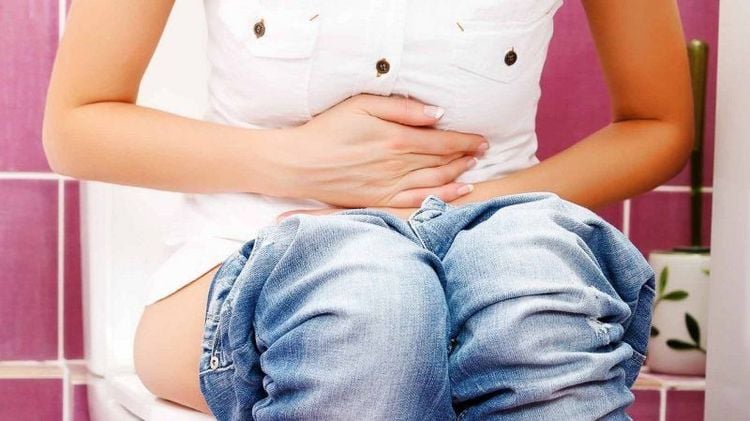
Tiêu chảy do sử dụng thuốc kháng sinh
3. Diarrhea complications due to antibiotic use
The most serious complication associated with taking antibiotics that cause diarrhea is pseudo-colitis, which can lead to life-threatening complications, including:
Dehydration: Severe diarrhea can lead to diarrhea. to excessive loss of water and electrolytes, mainly substances such as sodium and potassium. Excessive and long-term dehydration can cause serious complications. Signs and symptoms of dehydration include dry mouth, intense thirst, little or no urination, and extreme weakness. Intestinal perforation: Damage to the lining of the large intestine can lead to a perforation in the intestinal wall when diarrhea is excessively caused by antibiotic use. Megacolon: Caused by the colon becoming unable to expel gas and stool, the colon becomes enlarged. Signs and symptoms of an enlarged colon include: abdominal pain and bloating, fever, and weakness. This is a serious complication that can lead to infection or rupture and requires aggressive treatment.
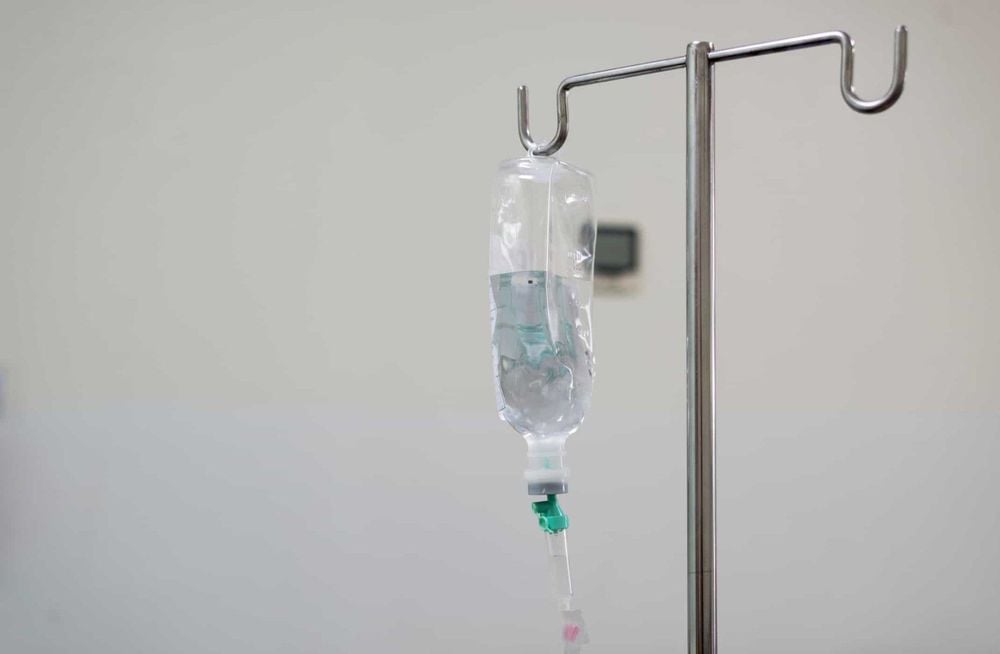
Người bệnh có thể gặp biến chứng mất nước
4. What to do when you have diarrhea caused by taking antibiotics?
Take antibiotics only when needed: Do not use antibiotics unless your doctor feels they need to be used. Antibiotics can treat bacterial infections but will not help with viral infections such as colds and flu.
Drink enough water: When dehydration is caused by antibiotic-associated diarrhea, you need to stay hydrated. If dehydration is severe, you should drink fluids containing water, sugar and salt or juice. Avoid drinks that are high in sugar or contain alcohol or caffeine, such as coffee, tea, and colas, which can worsen symptoms. For infants and children with diarrhea, ask your doctor about using an oral rehydration solution to replenish fluids and electrolytes;
The right diet: Choose soft, easy-to-digest foods, including apples, bananas, and rice. Avoid foods high in fiber such as beans, nuts, and vegetables. Eat and drink normally when the diarrhea symptoms have completely disappeared.
Take probiotics: help restore a healthy balance to the gut, increasing the amount of good bacteria. Probiotics are available in capsules or liquid or in certain foods such as yogurt.

Người bệnh cần có chế độ ăn hợp lý
Take medication for diarrhea: In some cases of mild antibiotic-associated diarrhea, your doctor may recommend an anti-diarrheal medication such as loperamide. However, you must ask your doctor before taking anti-diarrheal drugs because they can interfere with your body's ability to remove toxins and lead to serious complications.
Tell your doctor if you have taken antibiotics that cause diarrhea in the past. If you've had antibiotic-associated diarrhea in the past, you're at risk for a recurrence. At that time, your doctor can choose a different antibiotic that is more suitable for you.
Vinmec International General Hospital is one of the hospitals that not only ensures professional quality with a team of leading medical professionals, modern equipment and technology, but also stands out for its examination and consultation services. comprehensive and professional medical consultation and treatment; civilized, polite, safe and sterile medical examination and treatment space.
Customers can directly go to Vinmec Health system nationwide to visit or contact the hotline here for support.
LEARN MORE
Guidelines for rehydrating children with diarrhea Prevention and treatment of acute diarrhea in children How to handle when children have diarrhea due to taking antibiotics




